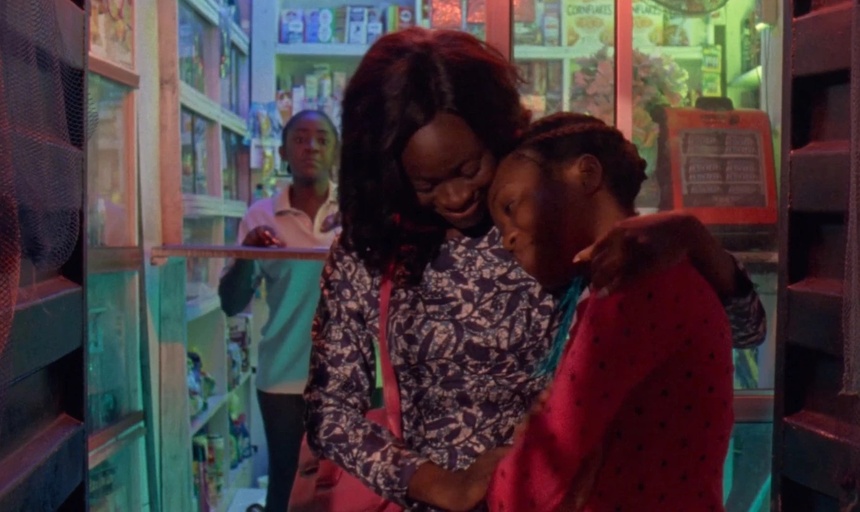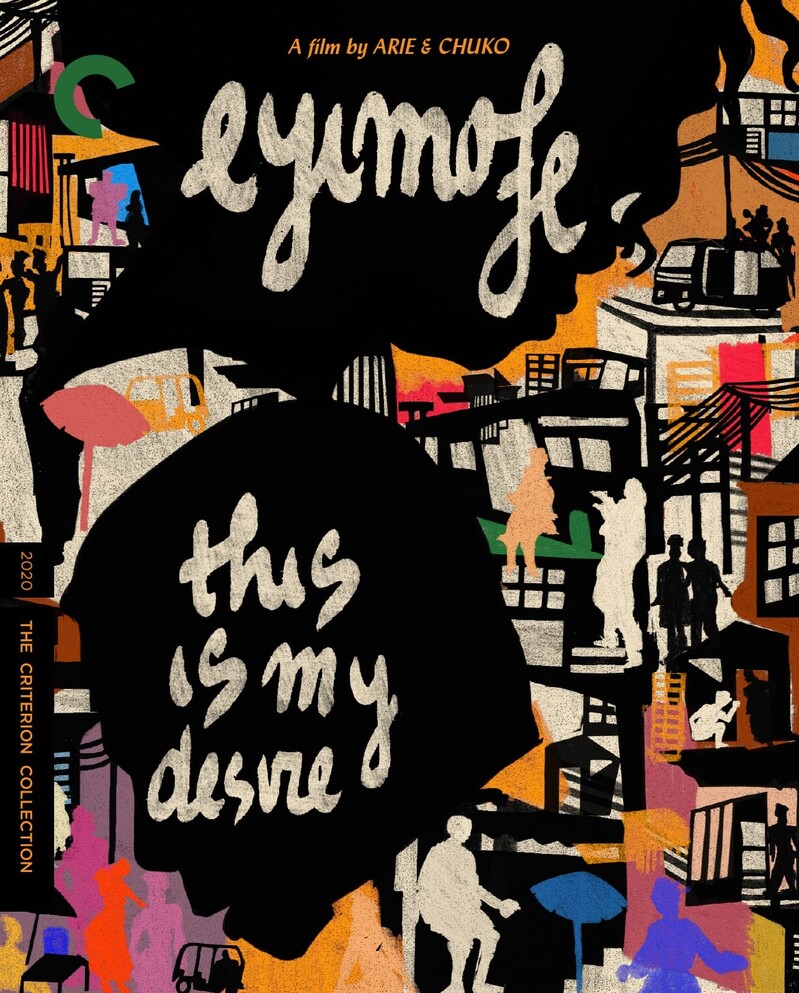Blu-ray Review: EYIMOFE (THIS IS MY DESIRE), Intimate Lives of Quiet Longing

African filma are sorely lacking in the Criterion collection, certainly not for lack of a quality cinema. And while most cinephiles might be familiar with the term 'Nollywood', the opportunities to see films from Nigeria, or many other African nations, outside of film festivals, is still rare. So when Criterion releases a very new Nigerian film, you should take notice. And with Eyimofe (This is My Desire), that should be easy to do.
Brothers Arie Esiri and Chuko Esiri's debut feature tells two tales of quiet desparation; of a longing for something better, and the harsh realities that keep some from achieving their desires. Grounded in strong performances, centred on a Lagos untouched and unseen by many outside eyes, it offers us a story of those whom the world too often neglects, those whose work in love and family loyalty too often remains unseen and unappreciated, even as they sacrifice, perhaps, too much of themselves.
In the first half we meet Mofe (Jude Akuwudike), an electrician, working at a company that doesn't let him do his job to the best of his ability. He's trying to get to a new life in Spain, but things take a turn when his sister and nephews die in a terrible accident, and Mofe is forced to keep paying for all the bureaucratic demands of the system, with no help from his father, and his dreams slowly slipping out of his grasp. In the second, we meet Rosa (Temiloluwa Ami-Williams), a hairdresser who is trying to take care of her pregant teenage sister. Rosa wants to get to Italy, but like Mofe, constant financial problems are a threat, and even as she innocently tries to get help from an American boyfriend, everything starts to crumble.
Money is the constant problem (isn't it everywhere?); Mofe is forced to take on the burden, with little understanding from anyone who seeks to gain from his desparation. He's a good man trying to do the right thing, but that pressure will crack on him, even as he knows he's gone too far. For Rosa, the added pressure she received via the desires of the men surrounding her give her even fewer options. How are they supposed to fulfill their dreams, if other people's mistakes are keeping them back?
This is the story of those who would be immigrants, of those who want that like offered and yet are continually told they cannot have it. Mofe and Rosa are two stories among likely many in their corner of Lagos, and the Esiri brothers take the time and care to help understand the space they live in. They live in apartments owned by the same man; they walk the same streets, past the same markets, each trying to find a way to function as whole human beings in a world that keeps denying them. This rhythm of life, neither slow nor fast but simply as a circle from which it is almost impossible to break free.
The Esiris' choice to shoot in 16mm makes this film feel intimate and real; for those of us in the West, perhaps we imagine that Mofe and Rosa are our neighbours, having left their home and gifted us with their presence, the quiet work of so many immigrants. For those of Nigeria, these are also their neighbours, the ones whom they might pass in the street, as Rosa and Mofe pass each other. Akuwudike and Ami-Williams light up and ground the screen, taking us through their emotional journeys with senstivity but not over-sentimentality, understanding the humanity of their characters and the courage they must find to endure these near-constant storms that constantly threaten to drown them. And yet, there is always hope and joy if they have the perserverance.
SPECIAL FEATURES
Originally shot in wonderfully intimate and just ever-so-slightly grainy 16mm, the 2K transfer keeps the warmth and immediacy of the print, letting us feel that warmth and be a part of the crowd that surrounds our characters are they try to sort out their lives. The sountrack comes alive with the sounds of the street and the wonderful music.
A great interview with the directors showcases much of their inspirations, and also how they found themselves both insiders and outsiders when making this film: their time spent outside Nigeria made them feel, and imposed on them, something of an outsider status, but the several months spent in Lagos before shooting gave them that dual perspective which lets us be a part of this story. An interview with producer Melissa O. Adeyemo is especially enlightening; it gives us insight into the process of co-productions, making a film in Nigeria, and the role of a producer that normally happens (too much) in the shadow: in other words, if you're interested in becoming a producer, this is a good introduction to that work.
The inclusion of three short films by the brothers shows the variety and strength of their talents. Goose, made in New York, about a boxer who discovers his injuries are more extensive than he realized; Besida, a woman struggling to find a way out, and my personal favourite, Because Men in Silk Shirts on Lagos Nights. This last one might have been made for a fashion house, but it has a wonderful Africanfuturism vibe and presentation that makes it eerily beautiful. Maryam Kazeem's essay provides excellent context to the story: for those like myself who have little knowledge of Nigerian culture, it helps fill in a lot of blanks and answer a few questions, enriching the story and making me want to watch the film again.
Eyimofe (This Is My Desire)
Director(s)
- Arie Esiri
- Chuko Esiri
Writer(s)
- Chuko Esiri
Cast
- Emmanuel Adeji
- Mary Agholor
- Kemi Lala Akindoju








